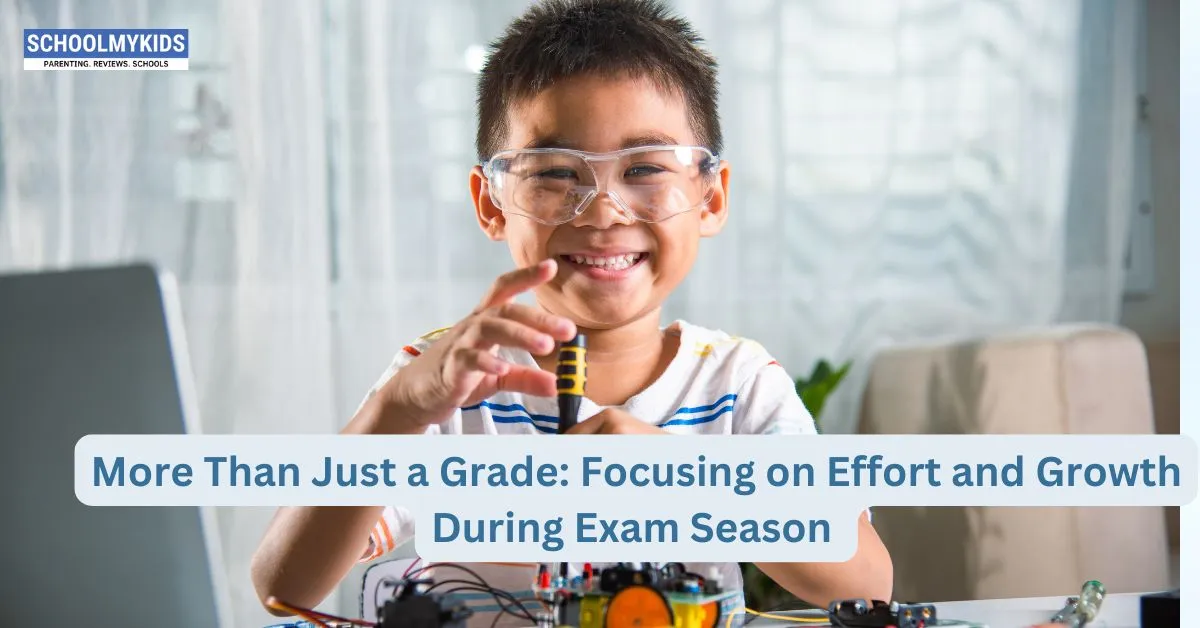Exam season often brings a whirlwind of emotions: stress, anxiety, and an overwhelming focus on the final grade. However, shifting the emphasis from merely achieving a high score to valuing effort and growth can transform the learning experience. This approach, rooted in the growth mindset theory, not only helps students navigate exam stress but also cultivates resilience and a lifelong love of learning.
Understanding the Limitations of Grade-Centric Thinking
When academic success is measured solely by a numerical score, students may miss out on critical opportunities for personal development. Focusing exclusively on grades can lead to several pitfalls.
The Pressure to Perform
Grades often become the primary indicator of intelligence and success. This pressure can:
- Increase Anxiety: Constant worry about achieving a high grade may overwhelm students, leading to burnout.
- Stifle Risk-Taking: Students may avoid challenging problems or subjects, fearing that mistakes will harm their overall score.
- Undermine Creativity: A narrow focus on correct answers and performance can reduce opportunities for creative problem-solving.
The Short-Term Focus
An emphasis on grades encourages a short-term approach to learning:
- Memorization Over Mastery: Students might resort to rote learning instead of understanding concepts deeply.
- Fixed Mindset Traps: Believing that intelligence is static can prevent students from engaging in behaviors that foster improvement.
- Missed Opportunities for Feedback: Grades often provide a summary of performance but do not detail the learning process, leaving little room for self-reflection and growth.
Embracing a Growth Mindset
Carol Dweck’s groundbreaking research on growth mindset offers a powerful alternative to grade-centric education. A growth mindset is the belief that abilities can be developed through dedication and hard work. This perspective encourages a focus on the learning process rather than the final outcome.
Key Principles of a Growth Mindset
Adopting a growth mindset involves several core ideas:
- Effort Leads to Improvement: Success is not just about inherent talent but also about the hard work put into learning.
- Challenges Are Opportunities: Difficulties are seen as chances to develop new strategies and skills.
- Learning from Criticism: Constructive feedback is valued as a tool for improvement.
- Persistence is Key: Resilience in the face of setbacks is crucial for long-term success.
Research-Backed Benefits
Studies have shown that students who embrace a growth mindset:
- Achieve Higher Academic Success: They are more likely to overcome obstacles and perform better academically.
- Show Greater Resilience: They recover faster from setbacks and view failures as temporary hurdles.
- Develop Better Problem-Solving Skills: Their approach to challenges is more analytical and less influenced by fear of failure.
Strategies to Foster Effort and Growth During Exam Season
Integrating a growth mindset into exam preparation can transform the learning experience. Here are several effective strategies:
Cultivating a Process-Oriented Approach
Shifting focus from outcomes to the learning process helps students value effort:
- Set Process Goals: Instead of aiming for a particular grade, set goals like mastering a topic or solving a certain number of problems.
- Celebrate Effort: Acknowledge the time and dedication put into studying, not just the final result.
- Reflect on Mistakes: Encourage students to analyze what went wrong and how they can improve, viewing errors as valuable learning opportunities.
Encouraging Active Learning Techniques
Active learning methods can enhance understanding and retention:
- Practice Testing: Regular quizzes or self-tests help students monitor their progress and identify areas for improvement.
- Peer Discussions: Collaborative learning encourages sharing different perspectives and strategies.
- Teaching Others: Explaining concepts to classmates reinforces understanding and builds confidence.
Managing Exam-Related Stress
Adopting a growth mindset also involves managing stress and maintaining well-being:
- Mindfulness and Relaxation: Techniques like meditation, deep breathing, and yoga can help reduce anxiety.
- Balanced Schedules: Ensure regular breaks during study sessions to avoid burnout.
- Positive Self-Talk: Encourage affirmations and self-compassion, reminding students that effort is more important than perfection.
Creating a Supportive Environment for Growth
Both parents and educators play a crucial role in fostering a growth mindset during exam season.
For Educators
Teachers can integrate growth mindset principles into their teaching methods:
- Provide Constructive Feedback: Focus on what was done well and how to improve, rather than just assigning a grade.
- Encourage Risk-Taking: Create an environment where mistakes are viewed as part of the learning process.
- Model Lifelong Learning: Share personal experiences of overcoming challenges and learning from setbacks.
For Parents
Parents can support their children by shifting the emphasis from grades to growth:
- Ask Process-Oriented Questions: Instead of asking, “What grade did you get?” try asking, “What did you learn today?”
- Recognize Effort: Celebrate the hard work your child puts into studying, regardless of the outcome.
- Provide a Calm Environment: Ensure that home remains a stress-free zone during exam periods, promoting balance and well-being.
Conclusion: Beyond the Grade
Focusing on effort and growth during exam season can profoundly impact students’ academic and personal lives. By embracing a growth mindset, students learn to view challenges as opportunities, develop resilience, and ultimately become more adaptable learners. Educators and parents alike can facilitate this shift by promoting process-oriented strategies and creating supportive environments that celebrate learning over performance.
In the end, academic success is not solely determined by a grade but by the skills, habits, and mindset cultivated along the journey. With a focus on effort and continuous growth, students not only excel in exams but also build a strong foundation for lifelong learning and personal development.









Be the first one to comment on this story.